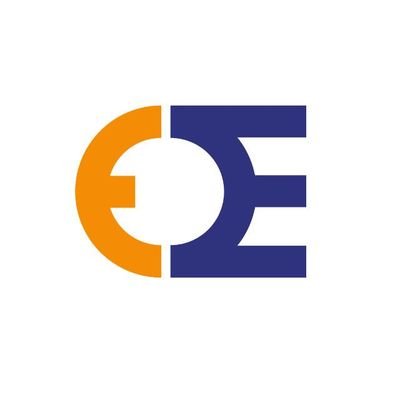Physical Address
304 North Cardinal St.
Dorchester Center, MA 02124

Want to Become a Top Petroleum Engineer? Here’s the Secret to Your JAMB Success! Give this a thought: the career of your dreams, a chance to shape the future of the oil and gas industry, but there’s just one thing standing in your way—what subjects do you need to study for JAMB to make that dream a reality?
You’re not alone in this journey. Thousands of O’Level students across Nigeria are wondering the same thing, and many of them miss out simply because they don’t know where to start. Knowing the right subjects for Petroleum Engineering in JAMB can be the difference between chasing and living your dream.
Understanding the right subject combination is your first step towards that exciting future—and with the right preparation, like the ExcelMind app, you can ace those subjects and secure your place at your dream university. This article will guide you through every detail about the Petroleum Engineering subjects at JAMB.

We’ll share proven strategies, show you how the ExcelMind app can give you an edge, and explain why mastering each subject is crucial for your JAMB success. Ready to start your journey to success? Keep reading, and let’s turn your dream into reality!
Read: Top Subjects for Civil Engineering in JAMB: Your Path to Success
Before we get into the specific subjects for Petroleum Engineering in JAMB, let’s understand why these subjects are required. JAMB selects these subjects based on what you need to know to excel in the field. For Petroleum Engineering, the core subjects focus on the sciences—Chemistry, Mathematics, and Physics. Here’s why:
Now that you understand the importance of each subject, let’s go deeper into the details.
For anyone aiming to study Petroleum Engineering in Nigeria, the right subjects for Petroleum Engineering in JAMB are critical. According to the official JAMB guidelines, you need to select these four subjects:

The combination of these subjects ensures you have the foundational knowledge needed to excel in Petroleum Engineering. While English Language is compulsory, your main focus should be on scoring well in Chemistry, Mathematics, and Physics, as these directly relate to your future studies.
Preparing for JAMB can be challenging, but with the right tools and strategy, you can ace it. Here’s how you can make the most of each subject:
Chemistry is often seen as tough, but understanding it can be made easy with the right approach. Focus on areas like organic chemistry, stoichiometry, and chemical reactions. Use the ExcelMind app to access video lessons and practice quizzes tailored to the JAMB syllabus. It breaks down complex concepts into simple explanations, helping you tackle tricky topics with ease.
Scoring well in Mathematics can boost your overall JAMB score. Topics like algebra, calculus, and statistics are key areas you should master. The ExcelMind app offers problem-solving tips and JAMB past questions that mimic what you’ll face in the exam. Plus, with its step-by-step solutions, you can understand where you went wrong and improve.
Physics can be fun if you grasp the basics. Focus on topics like mechanics, electricity, and optics, which are frequently tested in JAMB. The ExcelMind app provides simulations and interactive lessons that make physics concepts easy to understand. With practice questions on the app, you can test your knowledge and get immediate feedback, helping you prepare effectively.
Your score in these subjects for Petroleum Engineering in JAMB is more than just a number—it determines your chances of getting into your desired university. For competitive courses like Petroleum Engineering, you’ll need to score high, especially in Chemistry, Mathematics, and Physics.
Some universities require a minimum JAMB score of 180, but to increase your chances of admission, aim for 230 or higher. The ExcelMind app can help you achieve this by offering a personalized study plan based on your strengths and weaknesses.
It’s designed to maximize your preparation time, ensuring you focus on areas where you need improvement. With the app, you can track your progress and stay on top of your study goals.
It’s important to note that some universities have special requirements for Petroleum Engineering. For example:
Make sure to check the specific requirements of your chosen university so you can tailor your preparation accordingly.
The ExcelMind app is more than just a study tool; it’s your gateway to acing the subjects for Petroleum Engineering in JAMB. Here’s how it can help:

If you’re serious about becoming a Petroleum Engineer, it’s time to take action. Don’t let confusion about what subjects are needed for Petroleum Engineering in JAMB hold you back. The right preparation can set you on a path to success, and the ExcelMind app is your best companion on this journey.
Download the ExcelMind app today, start your study plan, and secure your spot at the university of your dreams. With practice questions, video lessons, and personalized study plans, you’ll be fully equipped to conquer the subjects for Petroleum Engineering in JAMB.
Ready to make your dream a reality? Click here to download the ExcelMind app now!
By starting your preparation early and focusing on these key subjects, you’ll be well on your way to becoming a successful Petroleum Engineer. Make the smart choice today and let the ExcelMind app guide you every step of the way. Your future in the oil and gas industry starts here.
The subjects offered in JAMB for Petroleum Engineering are:
English Language (Compulsory)
Chemistry
Mathematics
Physics
The subjects required for Petroleum Engineering at WAEC are:
English Language
Mathematics
Physics
Chemistry
Any one of the following Science subjects: Biology, Agricultural Science, Further Mathematics, or Technical Drawing
The JAMB score required for Petroleum Engineering varies depending on the university, but generally, a minimum score of 180 is required to be eligible for admission into most Nigerian universities. However, because Petroleum Engineering is highly competitive, many universities set higher cut-off marks, often ranging from 220 to 250 or even higher, depending on the institution and the number of applicants.
For Petroleum Engineering, the most important subjects are:
Mathematics: Essential for solving complex engineering problems, calculations, and analytical thinking.
Physics: Crucial for understanding the principles of mechanics, thermodynamics, and fluid dynamics, which are key in oil and gas extraction.
Chemistry: Important for understanding the composition of petroleum, refining processes, and chemical reactions.
In Nigeria, it typically takes five years to study Petroleum Engineering at the university level. This duration includes both coursework and practical training. During these five years, students complete a Bachelor’s degree in Petroleum Engineering (B.Eng) and participate in industrial training or internships, usually during the third or fourth year, to gain hands-on experience in the field.